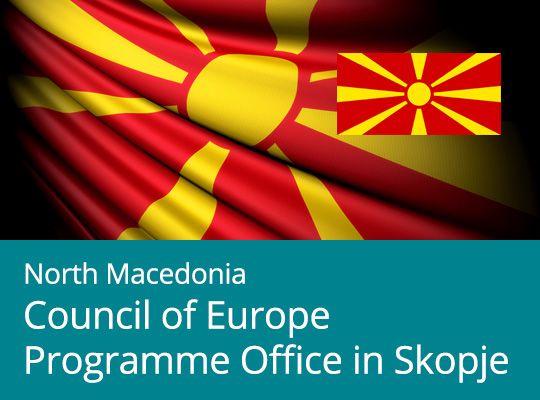Legal clinics authorised to provide primary legal aid play a vital role in promoting access to justice and upholding human rights in line with European standards. In a continued effort to strengthen equal access to justice in North Macedonia, 16 law students participated in the second cascade training on the “Provision of Free Legal Aid (FLA) in North Macedonia” that took place at the University Library in Bitola.
Supported by the European Union and the Council of Europe and organised in close co-operation with the Legal Clinic at the Faculty of Law in Bitola, the training enhanced the students’ capacities by equipping them with practical knowledge and tools essential for delivering free legal aid.
Ivona Shushak (Head of the Legal Clinic in Bitola), and Irena Cuculoska (Senoir Project Officer in the Council of Europe), underscored the importance of preparing future legal professionals to actively contribute to legal aid system in North Macedonia. They highlighted how legal clinics offer students real-world experience, enabling them to apply their academic knowledge while supporting individuals facing genuine legal challenges—a mutually enriching exchange that strengthens both learning and justice delivery.
A special session was devoted to legal aid for victims of crime and human trafficking, delivered in co-operation with the EU and Council of Europe action “Strengthening Anti-Trafficking Action in North Macedonia.” Irena Zdravkova, Council of Europe consultant, presented the Convention on Action against Trafficking in Human Beings and its monitoring mechanism, GRETA (Group of Experts on Action against Trafficking in Human Beings). Participants were also introduced to the work of the newly established State Commission on Compensation of Victims of Violent Crimes and the procedures for accessing compensation for trafficking victims.
Throughout the training, students engaged in practical exercises and case studies, helping bridge the gap between theory and practice. They explored key legal aid topics, including the distinction between primary and secondary legal aid, and the provision of support in cases involving domestic and gender-based violence, as well as child-related cases.
This training session is organised with the support of the action “Towards a consolidated and more efficient Free Legal Aid (FLA) system in North Macedonia” which is part of the joint European Union and Council of Europe programme “Horizontal Facility for the Western Balkans and Türkiye”.




